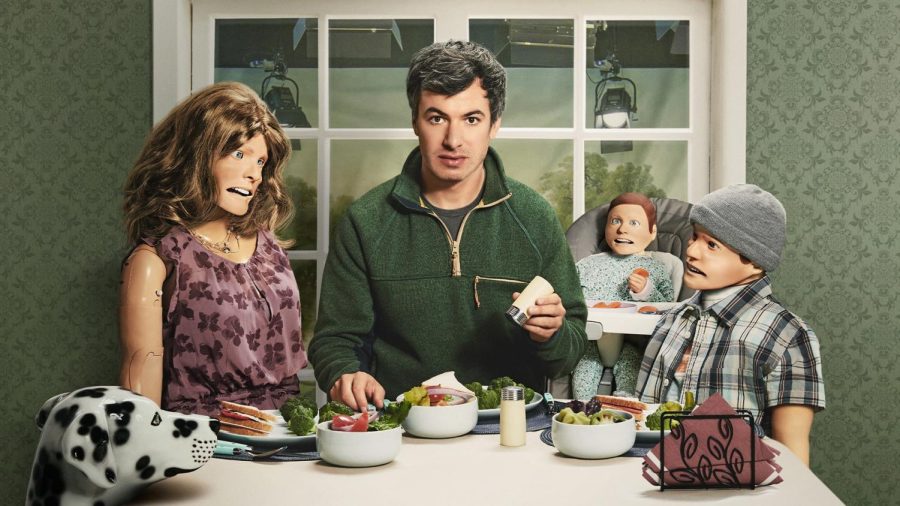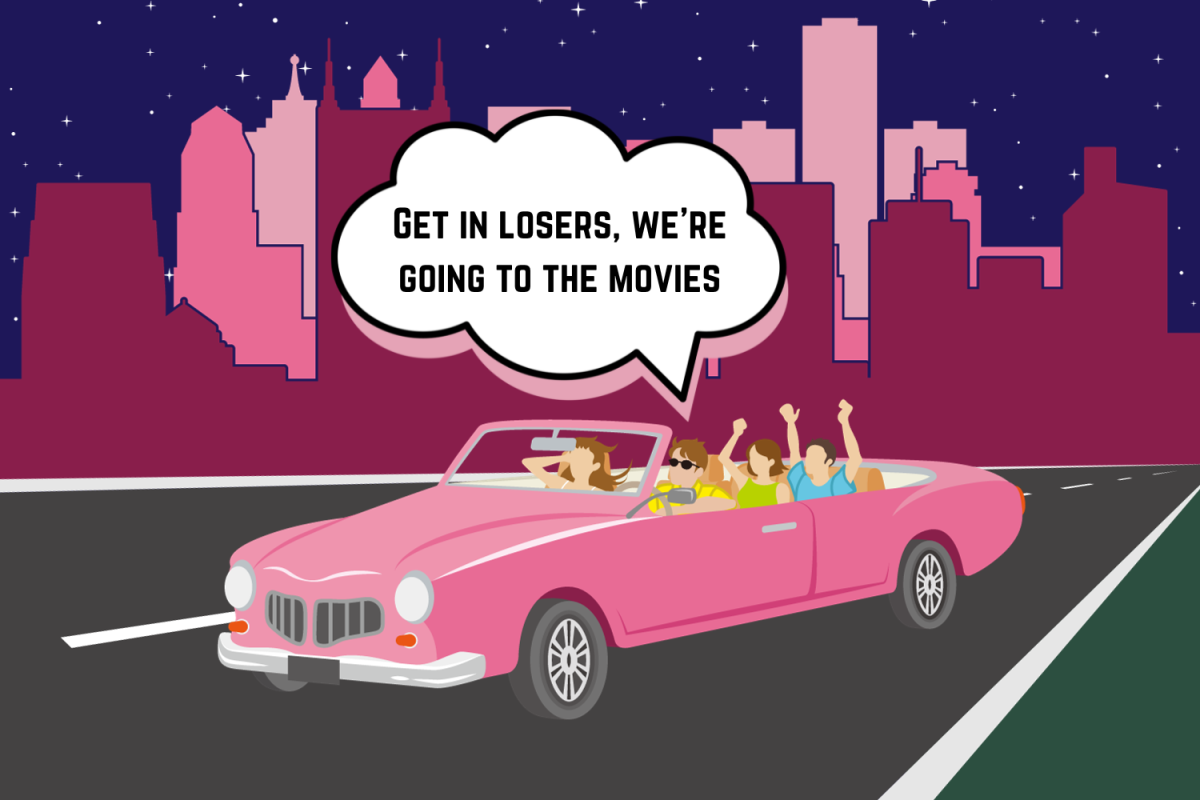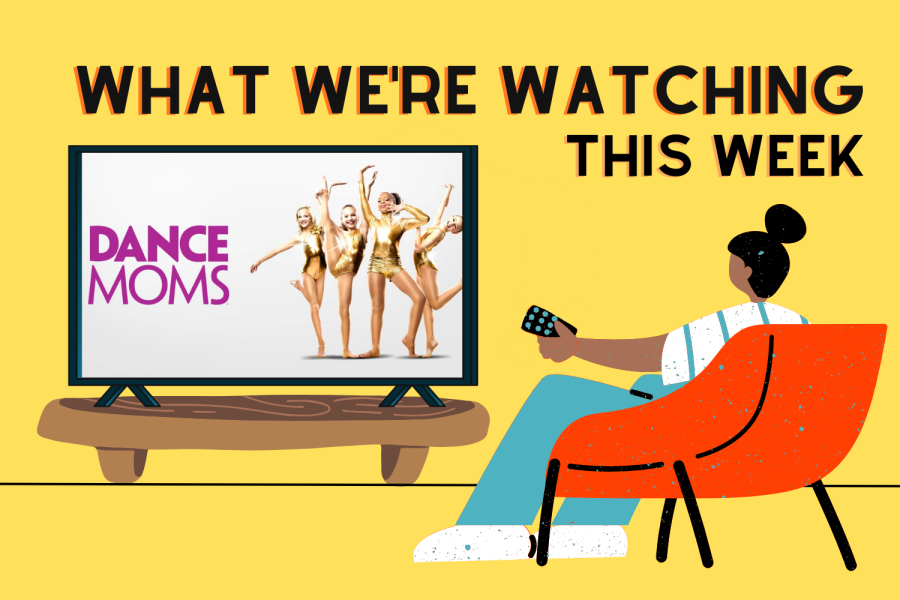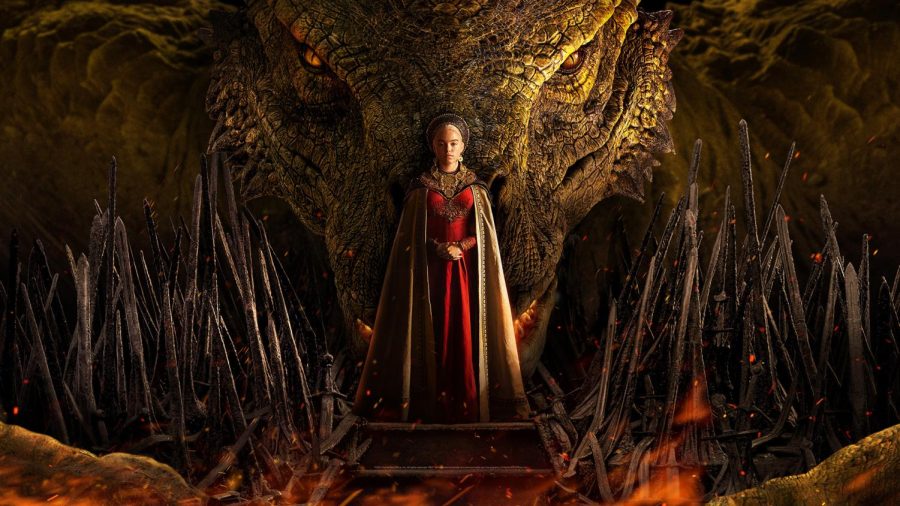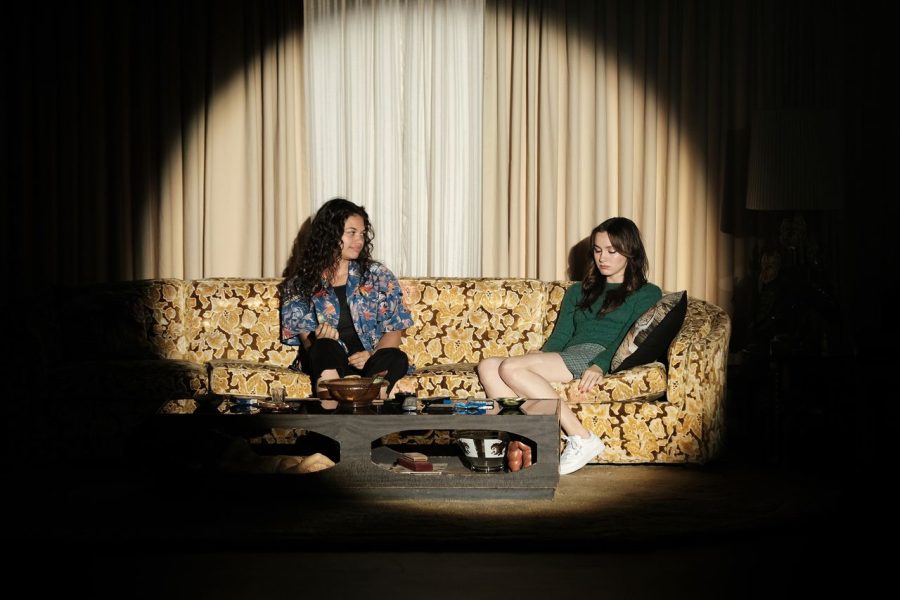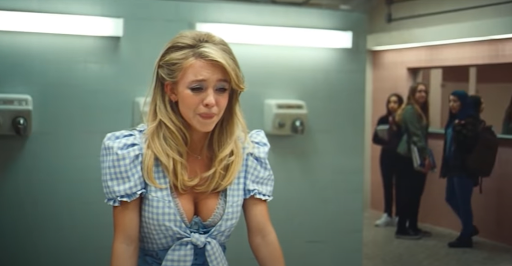Think back to a time in your life when you were pressed to take an uncomfortable action. Perhaps you took it upon yourself to finally break up with your ex. Maybe you had to engage with a friend or family member in an awkward conversation that resulted in an undesirable aftermath. If you were allowed to spend weeks on end rehearsing these problematic situations, familiarizing yourself with every possibility in order to squash any semblance of uncertainty during the actual moment, would you take it?
For those who have seen “Nathan for You,” comedian Nathan Fielder’s previous absurdist cringe comedy series, you may recall the wild feature-length finale, “Finding Francis,” in which he attempts to help the elderly Bill find his old lover. In one of the scenes, Fielder hires an actress to play Francis to help Bill plan and enact a perfect set of actions that would lead to a favorable outcome come the day of the reunion.
Fielder took off with this idea in the first season of “The Rehearsal,” where he strived to help people smoothly tackle the hardest conversations or moments in their lives through the utilization of staging elements to provide a rehearsal of the actual event. Just like with his first show, Fielder places the same trademark quirkiness and dry humor at the forefront. However, there is a stark contrast in tone between the two shows, very much due to the different client demographic (or victims) of Fielder’s dubious consultations. Instead of stiffly providing managerial services to small businesses to ameliorate cash flow and store traffic as per “Nathan for You,” Fielder has evolved to assist vulnerable people through deeply intimate conflicts, which is the emotional crux of the show.
While audiences still laugh at the absurdity of the onerous setpieces and schemes that Fielder conceives, I fully appreciate the profoundly psychogenic narrative woven throughout the season centered on the clients’ and Fielder’s distinctive takeaways from their respective rehearsals.
“Maybe it’s easiest to choose a path when you can live the future first. To free yourself from doubt and regret, to always know the answers,” Fielder said in the season pilot.
Fielder’s first client is revealed to be Kore Skeete, a Brooklyn native who is troubled by an impending confession that he must make to a longtime trivia teammate. The encumbering secret in question? Kore does not possess a master’s degree and has been lying to his friend about his educational status for decades. After entering Kore’s house and introducing himself, Fielder admitted that their entire interaction had been a product of his own set of rehearsals, which took place in a studio built to look exactly like Kore’s house and included a paid actor hired to reproduce the same mannerisms and speech patterns as Kore. In fact, even the confession that he is currently making at that very moment was a practiced spiel forged through trial and error. Mirroring his actor counterpart, Kore responded to this revelation with a mild “wow,” giving credence to the effectiveness of Fielder’s rehearsals. Fielder then constructs a full replica of the bar where the confession would soon occur and then has Kore practice for every possible scenario from the second he enters the bar to after the confession itself. When he begins to worry that Kore and his friend would be too distracted by the trivia night for the confession to work, Fielder obtains the answers and spends days covertly feeding them to Kore through their daily walks, masking them as conversational tidbits. At the episode’s denouement, after Kore finally admits his lie, Fielder’s guilty conscious after violating Kore’s honest spirit of the game becomes a major point of conflict. The final scene shows Fielder apologizing to someone off-camera, who the audience can infer is Kore. However, it is revealed that Fielder was once again rehearsing with the actor who portrayed Kore during rehearsals; Fielder was incapable of following up with his confession, even after using his practice tactics.
This interesting turn of events is why the cover of “The Rehearsal” is so interesting to me. It depicts a bewildered-looking Fielder sitting as the only human at a table with a mannequin family and an inanimate dog, with a tapestry of the outdoors displayed in the background and two film set light fixtures shining from beyond the window. A quick glance and it’s easy for one to be deceived. In the show, he tries his hardest to engineer emotions in his fabricated realities to perfectly duplicate life and its most simplistic, beautiful moments. There is a disconnect between fiction and actuality that is blurred for those on the television screen as well as those watching it. When does fictional Fielder stop and Nathan Fielder, the comedian, begin?
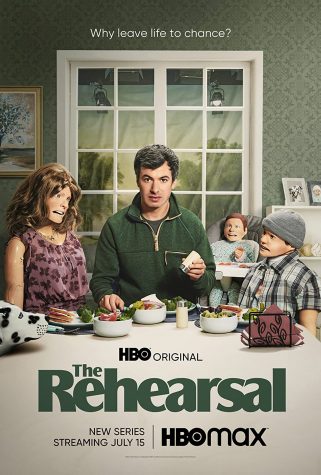
Indeed, the individuals seeking Fielder’s help are not really the main focus of “The Rehearsal.” The cornerstone of the show is Fielder and his struggle to make sense of others, manage his offbeat personality and realize the context in which he fits into the world. Unlike his earlier work, which depicts Fielder’s desperate attempts to form friendships with his clients as nothing but a joke to be laughed at, every episode of “The Rehearsal” includes Fielder’s internal monologue as he narrates his musings on his social shortcomings and the moral quandaries of his rehearsal tactics. Clearly, this show begs the audience to perceive it as philosophically meaningful, and perhaps this is done on purpose. After all, this is Fielder’s show, and it may double as a vessel for his own self-gratification. His usage of rehearsals to perfect his social interactions with his clients illustrates that his strange, gimlet-eyed self is perhaps the greatest benefactor of this show.
A show that’s this otherworldly cannot be restrained by the limits set by any one television genre, but its boldness isn’t without its criticisms. Some believe that Fielder goes a step or two too far in his antics, substituting human empathy for his callus persona. Others are turned off by the show’s intrinsically confusing narrative, as it thrusts the audience into intersecting layers of repetitive recreations without much warning or reason. What matters is that the deeply personal impacts that the show intends to create also entail ramifications that manifest within the world beyond the screen, beyond the intended confines of “The Rehearsal.”
The best example of such an occurrence is in the last episode when the recurring child actor character, Remy, is revealed to have developed a worrying attachment to Fielder after taking part in his rehearsals as he became adamant in referring to him as “daddy” and maintaining an unsustainable father-son relationship. Shocked by the first unintended real-world consequence of the rehearsals, Fielder puts himself through a series of contemplative reenactments of past trials with altered variables to identify mistakes that caused this to happen. This calls into question his obsession with details and dependency on rehearsed social interactions.
Due to the sheer unpredictability of human behavior and countless confounding variables of every situation, it is impossible to really “know the answers” to most of the difficult life decisions we must make. Ultimately, making mistakes and taking difficult situations head-on is integral to the human experience, and attempts to thwart this hinder us from becoming the best versions of ourselves and take away our ability to fully live life as it should be. I definitely would not choose to partake in Nathan Fielder’s rehearsal method. However, I found a deep connection with many of the artistic conceits within the show and fully appreciated its ingenuity and undeniable originality, so I would strongly recommend “The Rehearsal” to anyone looking for an entirely new viewing experience.

